Text and Photos by Henrylito D. Tacio
In introducing his book, Goat Husbandry, author David MacKenzie wrote: “When man began his farming operations in the dawn of history, the goat was the kingpin of the personal life, making possible the conquest of desert and mountain and the occupation of the fertile land that lay beyond. The first of Man’s domesticated animals to colonize the wilderness, the goat is the last to abandon the deserts that man leaves behind him.”
MacKenzie further wrote: “For ever the friend of the pioneer and the last survivor, the goat was never well loved by arable farmers on fertile land. When agriculture produces crops that man, cow and sheep can consume with more profit, the goat retreats to the mountain tops and the wilderness, rejected and despised – hated too, as the emblem of anarchy.”
Goats are considered the first hoofed animals ever tamed. In the Biblical town of Jericho, people kept tame goats as long as 6,000 or 7,000 years before Christ. The ancient Greeks and Romans paid great attention to the rearing of goats. Anyone at all familiar with classical authors will remember how frequently these animals are mentioned, especially in pastoral poems.
In the Philippines, more and more people are now raising goats – in their farms, in their backyards, and even in their ranches! “We have been raising goats since the early 1970s and we have observed that the demand for the animal has been growing,” admits Jethro P. Adang, the current director of the Mindanao Baptist Rural Life Center (MBRLC) Foundation, Inc. MBRLC is a non-government organization based in the southern part of the Philippines.
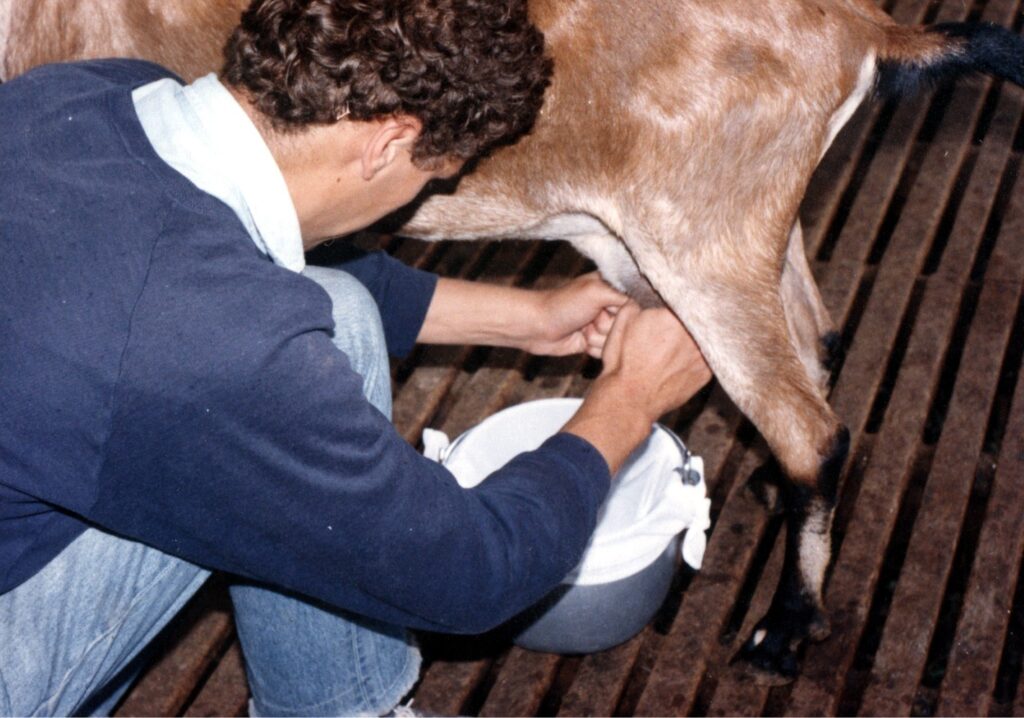
Milking a goat 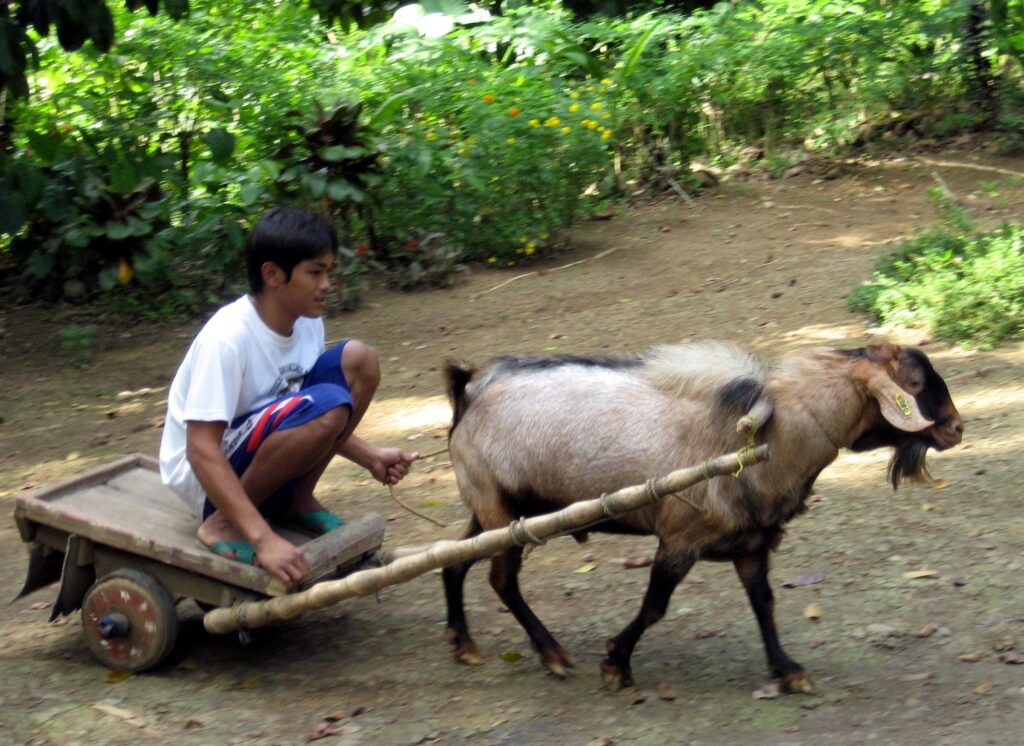
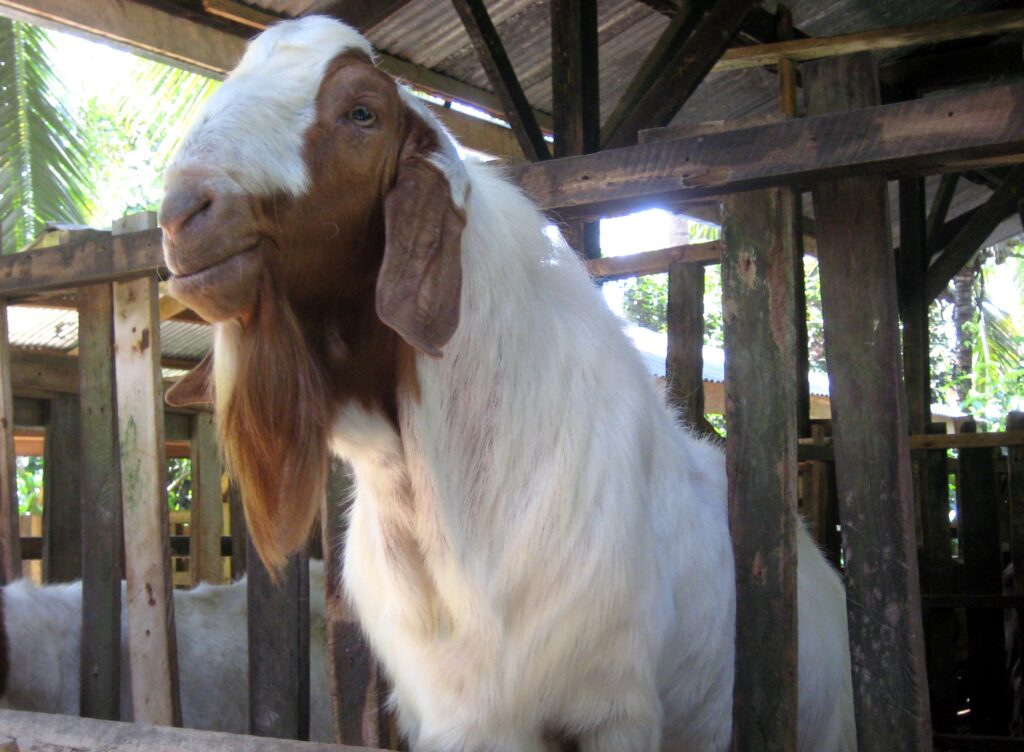
Boer goat 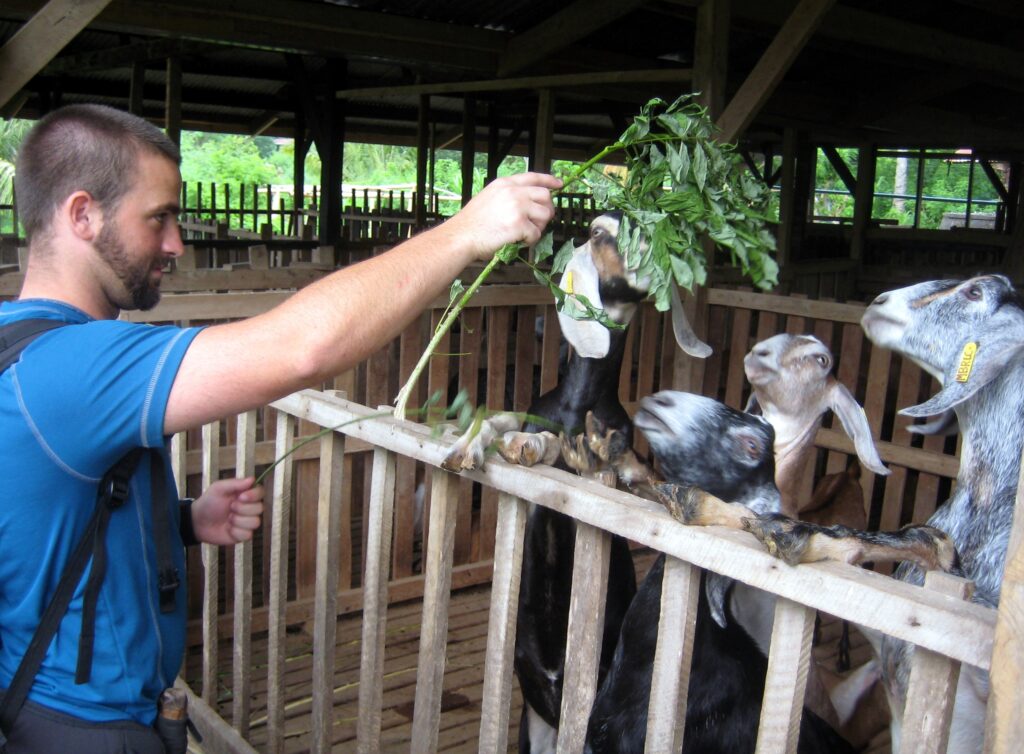
Feeding goats 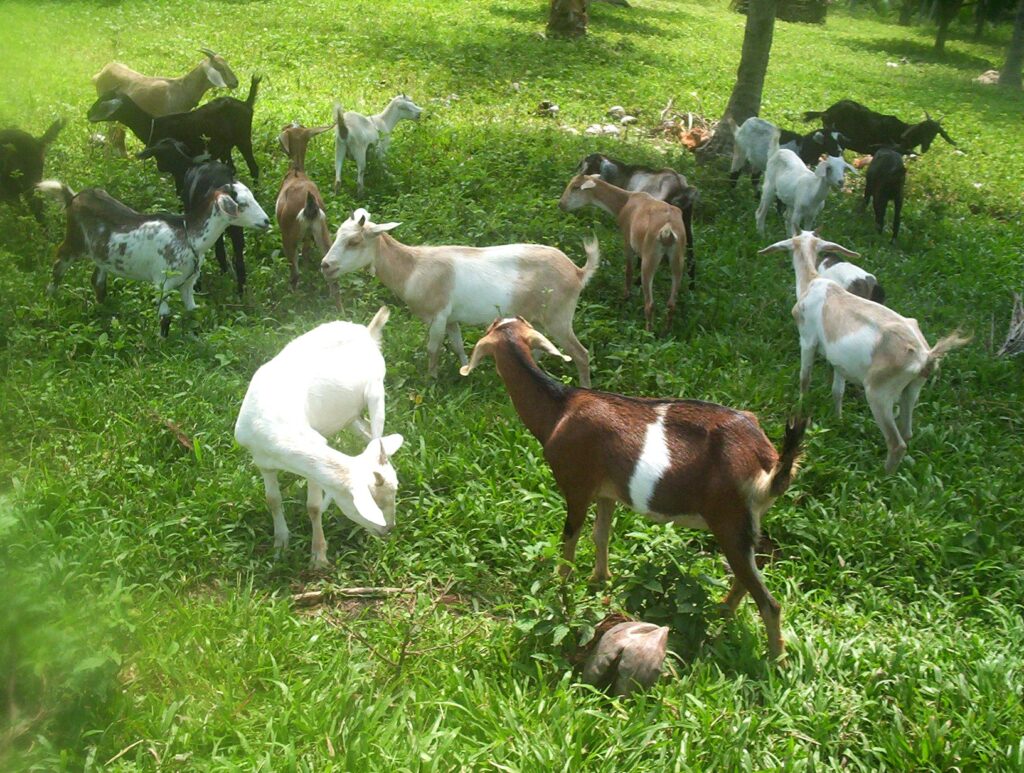
Backyard raising
Just like cows, the goat is valued mainly for its meat and milk. “As a milk producer, the goat is inevitably more efficient where the available fodder is of such low quality that a cow can barely live,” wrote MacKenzie in his book.
“Indeed, I find among the writers that the milk of the goat is next in estimation to a woman; for it helpeth the stomach, removeth oppilations and stoppings of the liver and looseth the belly,” wrote William Harrison echoing the opinion of 2,000 years of medical writing. Hippocrates commended the virtues of goats’ milk, and, according to Homer, some of the gods and goddesses themselves were reared on it.
There is probably no other animal – except dog – that has a greater variety of range than the goat. “It is met with in most parts of the world, and appears as much at home in the cold regions of Norway and Sweden as in the hot countries of Asia and Africa,” notes H.S. Holmes Pegler in The Book of the Goat.

